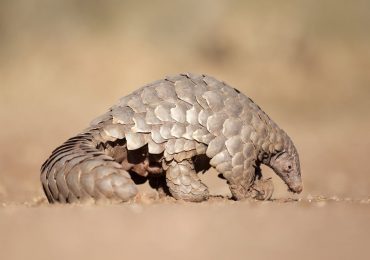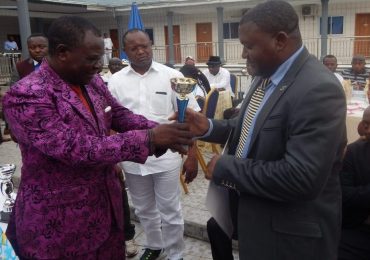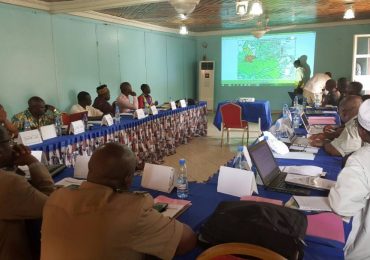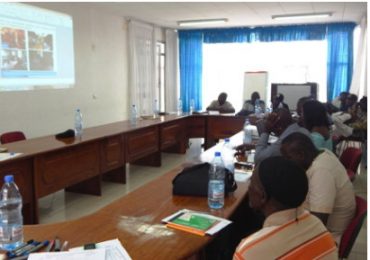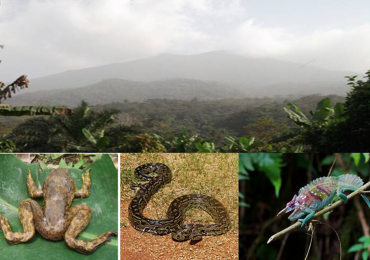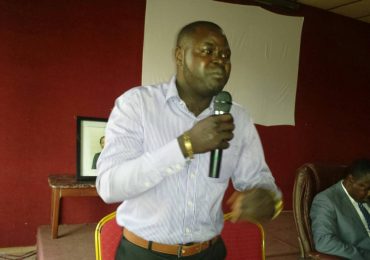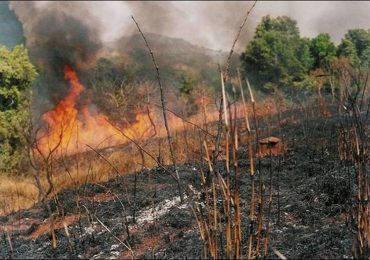In 2009, villagers of Erat in the southern section of Korup National Park burnt down all the posts meant for eco-guards in anger.
By Regina F. Leke
The villagers had been incensed that the park was depriving them of their forest where they derive their livelihood. This action was the high point of a longstanding grievance that has since existed between villagers and the management of the park.
Other villages that demonstrated hostility towards eco-guards included Ekon I, Esukutan, Ikenge, Bera, Mokango and Esuki.
In a bid to ease the conflict between villagers adjacent to the national park and eco-guards, and involve the local people in the management of the park, an NGO, Korup Rainforest Conservation Society, has adopted football as one of the possible ways to foster understanding between the belligerent factions.
The NGO has since been organizing football matches between eco-guards and villagers to reduce the tensions between them and promote conservation.
“After seeing the enormous conflict between the eco-guards and villages which was impacting the park negatively, we decided to bring the two together in a social gathering and football just seemed to be the perfect option,” said Orume Robinson, the founder of the NGO.
According to Orume, they visited the villages and shared jerseys bearing the names of different villages. The teams were named after key wildlife species in the park such as the Sumbo (Drill) FC and the Mangabey FC.
Football matches took place in the villages and during the matches, environmental club students went round sharing leaflets containing conservation messages.
One of the football matches which took place in Erat pulled a crowd from over 500 villages, culminating in donations of cash trophies to the winning villages.
After the match in Erat, a cash prize of 100.000 francs cfa was given to the villages that participated in the match, and another 100.000 was used to purchase farming equipment to distribute to farmers.
In another match won by the eco-guards, the eco-guards donated their cash prize of 100.000 francs cfa to the villagers to purchase sanitation materials as their own contribution to support the villagers.
Orume said the matches have paid off significantly as the tension between the eco-guards and the villages within the park has reduced over time.
“Presently, eco-guards who patrol the Korup National Park are lodged by these villages thus easing their work,” said Orume.
He, however, told The Green vision that they faced a series of challenges, which prevented them from reaching their full potential.
“We sometimes find it difficult to access the villages due to poor road network, flooded rivers. We equally have not had the best of support from the hierarchy of the park. For a match to take place, the management of the park has to sign a letter from the people wishing to take participate, but sometimes letters come to the park and the hierarchy deliberately refuses to visa them. The result is we go for months without having these matches,” Orume complained.
Apart from the football matches, the organization has drawn up a list of local people who have experience in issues of the park and who now act as field guides to researchers and developmental experts who come to work in the park.
The NGO has equally held campaigns on international days such as World Environment Day to raise awareness on biodiversity conservation. It has received support from the Conservation Leadership Program and the Program for the Sustainable Management of Natural Resources (PMNSR).
NGO Uses Football To Ease Village-Park Conflict



